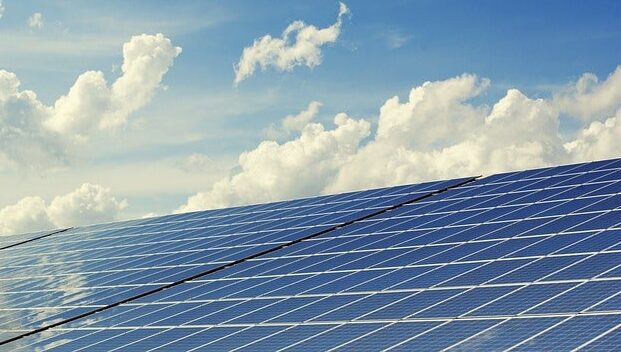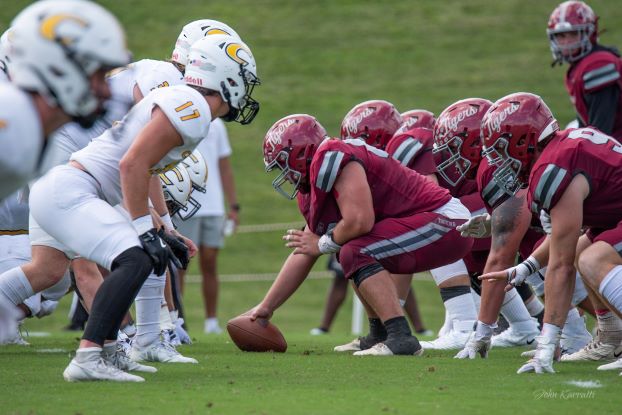With multiple solar bills defeated, one remains in Assembly
Published 7:41 am Monday, February 10, 2025
|
Getting your Trinity Audio player ready...
|
There was a bit of a sigh of relief last week, after the Virginia Senate finished voting on solar bills. Two weeks ago, a Virginia House bill that would have taken away local control of solar decisions was voted down and killed. Then last week, the Senate version of the bill, SB1190, was also voted down, this time by the smallest of margins, 20-19.
And that would be cause for celebration for counties who opposed the bills like Buckingham and Prince Edward, except it turned into a two-day question. It turns out SB1190 wasn’t 100% dead after all. Immediately after the vote was taken Monday, several senators asked for it to be reconsidered. Some members of the body apparently claimed they weren’t sure what they were voting on, or got confused, so the Senate agreed to another vote on the bill. However, that vote didn’t happen immediately.
In fact, as soon as the bill was resurrected, a motion was made and accepted to pass it by for the day. Then on Tuesday, the same thing happened, effectively killing it again. Tuesday afternoon was the crossover deadline. That means If a bill filed in the Senate didn’t make it through to the House by then, it’s done for this session. So after a slight delay, two of the three solar control bills have now been terminated for this session. One more remains. HB2438 made it through on another close vote, 48-46, with several House members, including our own representative Del. Tommy Wright, choosing not to vote. Wright was one of six House members who declined to vote when the bill came up for one last call.
What does the last of the solar bills do?
Trending
So what does this solar bill do? It strips out several supports when it comes to local government. Currently in Buckingham, Cumberland and Prince Edward, any proposed or approved solar facilities would be subject to the county’s zoning regulations, just like any other conditional use. This bill would literally remove that language.
In the state code, it would state any “solar facility proposed on property zoned agricultural, including any solar facility that is designed to serve, or serves, the electricity or thermal needs of any property other than the property where such facilities are located, shall be permitted pursuant to 15.2-2288.8 unless otherwise permitted by right.”
What’s changed in that statement is almost near the end, where it says “shall be”, currently that says “shall be subject to any applicable zoning regulations of the locality.” This bill eliminates that local control. In fact, four times in that part of the Virginia Code, the words “unless a local ordinance provides otherwise” shows up, giving counties and cities the ability to restrict, to decide where and when they want to approve solar projects or if they don’t. All four of those “unless a local ordinance provides otherwise” references have been removed in this bill.
It also removes the word any and instead says “each locality shall require” regulations and provisions for solar “consistent with this section”.
Just like the bills that failed, this would require each city, county and town to review their solar ordinance and take out anything that doesn’t match the state requirements for the Clean Economy Act. It puts restrictions on the height of fences surrounding the solar panels, decides what the maximum height would be and even what setbacks are allowed.
Defining a clean economy
So what is the Clean Economy Act? Approved by the General Assembly in 2020, the Clean Economy Act requires just under two-thirds of the state’s electricity to come from solar or wind energy by the end of 2035. And while that’s a long way out just yet, new data is causing concern for some Assembly members, who are afraid Virginia won’t meet that deadline.
Trending
In 2024, for the first time ever, Virginia cities and counties rejected more solar projects than they approved. That’s according to a report from the University of Virginia’s Weldon Cooper Center. In fact, the amount of new projects approved in 2024 was the lowest amount in six years. It’s raised concerns both from Assembly members and solar companies, who are urging lawmakers to pass the bill.
“Over half of Virginia’s counties have signaled to solar energy that they are closed for business,” said Evan Vaughan, Executive Director of MAREC Action, in a statement sent out in late January to media. “There are 55 counties and cities that have either banned or made it difficult and costly to develop utility-scale solar projects. Others have no ordinances at all to regulate solar projects. We acknowledge localities that have welcomed solar projects, but the current situation makes the development process inconsistent and unpredictable for localities and developers alike at the very time that Virginia needs more clean energy.”
To clarify, MAREC Action (Mid-Atlantic Renewable Energy Coalition) is a coalition of more than 50 energy companies, operating in the Mid-Atlantic region. Vaughan further claimed in the statement that good solar projects that Virginia needs are being blocked through a patchwork of local decisions and policies, while Virginia’s energy demand continues to grow. This trend, Vaughan claimed, threatens Virginia’s ability to meet its expanding energy demand and achieve clean energy goals.
What comes next?
So the bill made it across in crossover. Now it’s sitting in the Virginia Senate, having been assigned a committee on Tuesday. HB2438 is now in the Committee on Commerce and Labor, where previous solar bills were heard and pushed through earlier this year. It’s not currently scheduled for a first hearing, but that could change later this week.






